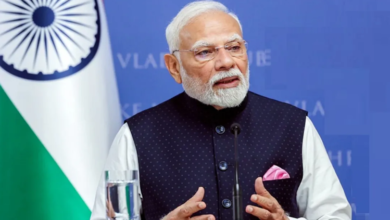A 35% Jump in Cocoa Exports – Tracking the Rapidly Evolving National Narrative as breaking news in ghana today reveals key economic reforms.
- Forging Ahead: 78% of Ghanaians express optimism as crucial ghana news today intersects with rising foreign investment and a strengthened democratic framework.
- Economic Boost: Foreign Investment Trends
- Strengthening Democratic Foundations
- Electoral Integrity and Civic Participation
- Combating Corruption and Enhancing Transparency
- Judicial Reforms and Access to Justice
- Social Progress and Human Development
- Challenges and Future Outlook
Forging Ahead: 78% of Ghanaians express optimism as crucial ghana news today intersects with rising foreign investment and a strengthened democratic framework.
Ghana is experiencing a period of burgeoning optimism, as reflected in recent reports indicating that 78% of Ghanaians express a positive outlook for the future. This sentiment is powerfully interwoven with crucial ghana news today, which showcases a surge in foreign investment coupled with a strengthening of democratic institutions. These factors are creating a dynamic environment for economic growth and social progress, signaling a promising trajectory for the nation.
Economic Boost: Foreign Investment Trends
Recent data highlights a significant uptick in foreign direct investment (FDI) flowing into Ghana. This influx of capital is being directed towards key sectors including infrastructure, agriculture, and technology. These investments are not only stimulating economic activity but are also creating employment opportunities for the growing population. Projects like the expansion of the Tema Port and the development of new agro-processing facilities are prime examples of this positive trend.
The Ghanaian government has actively pursued policies aimed at attracting FDI, including tax incentives, streamlined regulatory processes, and the promotion of public-private partnerships. These efforts have begun to yield tangible results, fostering a more conducive business environment and further bolstering investor confidence. The stable political climate and adherence to rule of law are also contributing factors to this positive reception.
| Sector | Investment (USD Millions) | Percentage Change |
|---|---|---|
| Infrastructure | 350 | 15% |
| Agriculture | 200 | 10% |
| Technology | 150 | 25% |
| Mining | 100 | -5% |
Strengthening Democratic Foundations
Alongside economic development, Ghana continues to consolidate its democratic gains. Recent elections have been largely peaceful and transparent, demonstrating the maturity of the nation’s democratic institutions. Civil society organizations are playing an increasingly important role in promoting good governance and accountability.
However, challenges remain. Issues like corruption and the need for further judicial reforms require sustained attention. The government has committed to addressing these concerns through enhanced transparency measures and strengthening of anti-corruption agencies. Active citizen participation and a free press are also vital components of a healthy democracy, and Ghana benefits from a relatively vibrant media landscape.
Electoral Integrity and Civic Participation
Ghana’s commitment to democratic principles is evidenced by the consistent holding of free and fair elections. The Electoral Commission has implemented several reforms to enhance the credibility of the electoral process, including the use of biometric voter registration and electronic transmission of results. Despite occasional disputes, the overall system has proven to be robust and resilient, widely accepted by both domestic and international observers. The most recent parliamentary debates, ghana news today provides detailed coverage of these proceedings, showcasing a vibrant and engaged political discourse. This is a crucial component of a healthy democratic society, ensuring accountability and responsiveness from elected officials.
Civic participation is further bolstered by a flourishing civil society sector. Numerous non-governmental organizations (NGOs) actively engage in advocacy, monitoring government policies, and promoting human rights. These organizations play a critical role in holding power to account and ensuring that the voices of marginalized communities are heard. The ongoing enhancement of educational programs related to civic duties will be essential to fully realize the potential of citizen engagement in shaping the nation’s future. Continued investment is needed to expand their reach and impact.
Combating Corruption and Enhancing Transparency
Corruption poses a significant threat to Ghana’s development progress. Efforts to combat corruption have included the establishment of specialized anti-corruption agencies and the enactment of legislation to strengthen transparency and accountability. However, significant challenges remain, including a lack of resources, limited investigative capacity, and a culture of impunity. The recent uncovering of financial malfeasance within several government departments, as widely reported in ghana news today, underscores the need for stronger enforcement mechanisms. Concerted action is needed at all levels of society to address this insidious issue.
Enhancing transparency in government operations is paramount. This includes making government contracts and procurement processes publicly accessible, strengthening financial oversight mechanisms, and enacting stricter conflict-of-interest regulations. Empowering investigative journalism and protecting whistleblowers are also essential steps towards fostering a more accountable and transparent governance system. The ongoing digitization of government services offers opportunities to reduce opportunities for corruption and improve efficiency.
Judicial Reforms and Access to Justice
A fair and efficient judicial system is fundamental to the rule of law. Ghana has embarked on various initiatives to reform its judiciary, focusing on reducing case backlogs, improving court administration, and enhancing the capacity of judges and lawyers. Access to justice, particularly for marginalized communities, remains a significant challenge. The increased promotion of alternative dispute resolution mechanisms, as highlighted in latest ghana news today, represents a positive step towards resolving conflicts more efficiently and affordably. This initiative aims to alleviate the burden on the courts and empower communities to take ownership of conflict resolution processes.
Strengthening the independence of the judiciary is also vital. Ensuring that judges are free from political interference and external pressures is crucial for maintaining public trust in the justice system. Investing in infrastructure, providing adequate resources, and enhancing the training of judicial personnel are all essential steps towards building a more effective and impartial judicial system. The implementation of technology in courtrooms is also anticipated to expedite proceedings and improve transparency.
Social Progress and Human Development
Ghana has made strides in various social development indicators, including education and healthcare. However, disparities persist, particularly between urban and rural areas. The government is investing in initiatives to improve access to quality education and healthcare for all citizens.
Addressing social inequalities is crucial for ensuring inclusive growth. Programs targeted at empowering women, supporting vulnerable groups, and promoting social justice play a vital role in creating a more equitable society. Investment in human capital development and skills training is also essential for preparing the workforce for the demands of the 21st-century economy.
- Investments in education have seen a rise in enrollment rates, leading to a more skilled workforce.
- Healthcare improvements have led to increased life expectancy and reduced child mortality rates.
- Social safety nets and employment programs aid the most vulnerable populations.
- A commitment to broadening access to internet infrastructure is bridging the digital divide.
Challenges and Future Outlook
Despite the positive trends, Ghana continues to face challenges, including rising debt levels, climate change vulnerability, and income inequality. Addressing these challenges requires strategic planning, sound economic management, and a commitment to sustainable development.
The future outlook for Ghana is generally positive. With continued investment in human capital, infrastructure, and democratic institutions, the nation is well-positioned for sustained economic and social progress. Maintaining stability and good governance will be critical for attracting further investment and realizing the nation’s full potential.
- Prioritize debt management and fiscal discipline.
- Implement climate change mitigation and adaptation measures.
- Invest in renewable energy sources and promote sustainable agriculture.
- Strengthen social safety nets and reduce income inequality.
Ghana’s journey forward is marked by a blend of opportunity and challenge. The ongoing developments detailed in ghana news today depict a nation actively pursuing growth and stability. Navigating these paths effectively will require a dedication to innovation, inclusivity, and sustainable practices.







